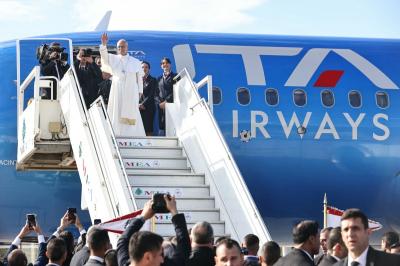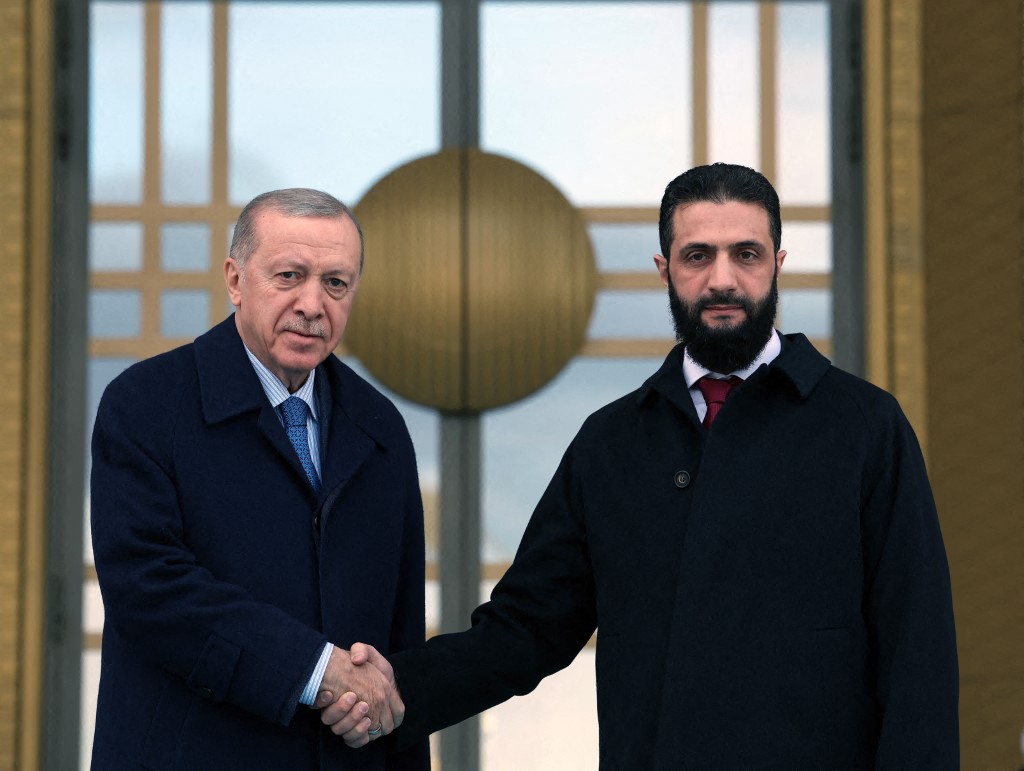The United States seldom neglects any issue on the regional or global stage. While every geopolitical file holds strategic value for Washington, the order of priority constantly shifts according to the circumstances surrounding each dossier.
Today, despite simultaneous focus on Israel, Gaza, the West Bank, and Lebanon — not to mention the ongoing nuclear talks with Tehran — Syria has reemerged as a top priority for the U.S. foreign policy.
Although the U.S. had previously announced its intent to withdraw from Syria, recent developments suggest this exit may be part of a broader geopolitical bargain. Washington has moved closer to Moscow in pursuit of a resolution to the Russia-Ukraine war — reportedly expressing willingness to recognize Russia’s control over Crimea (pre-2022 lines) and viewing eastern Ukrainian regions under Russian influence in the same light as the West Bank under Israeli control.
One possible clause in this evolving deal: a mutual U.S.-Russian military disengagement from the Syrian soil.
U.S. sanctions on Syria, notably under the Caesar Act, are also reportedly under review, with the possibility of a conditional lifting. Among the main demands:
- A complete dismantling of Russian military bases in Tartus and Latakia.
- A formal agreement between the Syrian government and Kurdish forces, modeled after a recent deal reportedly struck between President Ahmad Al-Sharaa and Syrian Democratic Forces (SDF) commander Mazloum Abdi. The latter was flown into Damascus by U.S. military aircraft to finalize the agreement, before returning to Kurdish-controlled territories. The envisioned outcome: a centralized Syrian state that safeguards minority rights, particularly for Druze and Kurdish communities.
What remains unspoken — and notably absent from diplomatic discussions — is the fate of Syrian offshore gas and oil blocks, previously granted to Russia under the former regime.
Despite ongoing Israeli encroachments into southern Syria, international eyes are turning to Damascus, viewing the war-torn country as a ripe landscape for future political and economic investment. Lebanon, by contrast, has become more of a security and military concern than a political one for Washington.
Speculation is growing around a potential meeting between U.S. President Donald Trump and President Al-Sharaa in Riyadh, possibly on the sidelines of Trump’s anticipated visit to Saudi Arabia. The thaw in relations between Syria and the Gulf states — particularly Saudi Arabia — has made such a meeting increasingly plausible.
There are also signs of a U.S.-Turkey understanding on Syria, likely with Israel’s knowledge. This could explain recent de-escalation from Ankara, including its halt of airstrikes on Kurdish areas and a quiet American congressional delegation visit to Damascus. The visiting lawmakers reportedly held high-level talks with President Al-Sharaa and Foreign Minister Asaad Sheibani — discussions described by insiders as “highly significant.”
As part of this same Turkish-American framework, SDF forces have begun transferring control of strategic zones — such as Tabqa and the Euphrates region — to Syrian government forces. These moves followed recent trilateral meetings between Kurdish, Syrian, and Turkish officials in Damascus and Ankara.
This new arrangement marks a departure from the previous Russo-Israeli balance of power in Syria. In contrast, the U.S.-Turkey partnership is now increasingly shaping the country’s future. A telling moment came during Trump’s latest meeting with Israeli Prime Minister Benjamin Netanyahu, in which Trump offered to mediate between Netanyahu and Turkish President Recep Tayyip Erdoğan — even publicly praising Erdoğan to emphasize the strength of Washington-Ankara alignment on Syria.
While Gulf powers remain cautiously wary of Turkey’s expanding influence in Syria, relations between Ankara and key Arab capitals are stable, if not improving. Turkish-Qatari ties remain strong, while Saudi Arabia continues to purchase Turkish drones and weaponry. Relations with the UAE, Oman, and others also appear untroubled.
Turkey, it seems, has recalibrated its ambitions in Syria. Aware of the failure of Islamist rule in Egypt under President Mohamed Morsi, Ankara now advocates a Syrian government that is more broadly acceptable to Gulf countries, hoping to avoid future regional clashes.
In this new post-war order, one name stands out: Syrian Foreign Minister Asaad Sheibani. Seen as the "strong arm" of President Al-Sharaa, Sheibani was a key figure at the recent Munich Security Conference, where he held multiple meetings with his Turkish counterpart. Well-regarded in both Washington and Ankara, Sheibani is increasingly perceived as a "statesman" with growing international clout.
For decades, Syria was known as “the beating heart of Arabism,” regardless of who ruled it. But today, the question is different: Is Syria now being reshaped to become the “beating heart of the regional solutions”?
Please post your comments on:
[email protected]
 Politics
Politics














